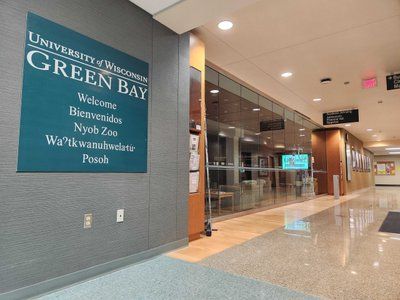By Tom Still
MADISON – In a scene from “Guys on Ice,” the comedic musical about two Wisconsin ice fishermen, the main characters muse about what heaven might offer should they abruptly be “pulled up” like a hooked fish. Lloyd and Marvin imagine heaven as the icy opposite of hell, stocked with 50-pound perch minus the bag limits … and a place where the highway toll booths in Illinois pay them.
The scene offers insight into how many people in Wisconsin view toll roads. They’re simultaneously miffed there’s no free pass south into the Land of Lincoln and jealous that other states have ways to make visitors pay for highway maintenance.
That conflict in public opinion may surface now that a consultant’s report to the state Department of Transportation has revived the idea that Wisconsin could toll on its interstate highways and raise hundreds of millions of dollars per year.
The report, which covered other issues related to Wisconsin’s transportation funding crunch, is the latest addition to a debate that may define the upcoming state budget debate. Gov. Scott Walker has vowed not to raise taxes without a corresponding tax cut, and Assembly Republicans have warned that deteriorating roads and bridges will hamper the state economy unless they’re repaired or rebuilt.
Toll roads may be a part of the answer.
Tolls could help pay for so-called “hot lanes” planned for I-39/90 from Beloit to Madison, and eventually to the Wisconsin Dells. Advantages include avoiding higher state fuel taxes, not tapping the state’s general fund for transportation needs, reducing the need to borrow and cutting dependence on federal aid.
Tolls would allow construction projects to be planned and built faster – and to avoid federal aid penalties if work is not done on time. They’re also a form of “congestion pricing,” encouraging users to make more efficient route choices.
Tolls also export a fair share of road maintenance costs to users from other states, Illinois included, a fact that carries some political appeal. The I-90, I-94, 1-39 and 1-43 corridors connecting Chicago, Milwaukee, Madison and the Twin Cities area in Minnesota are busy commercial alleys for traffic originating far outside Wisconsin.
Tolls assess user fees by vehicle, not by fuel source. As cars and trucks become more efficient, it’s a way to supplement traditional gasoline and diesel taxes.
Then again, tolls have drawbacks: There’s the actual cost of collection, which would require an RFID electronic transponder system similar to I-Pass in Illinois, some “cash only” booths and an enforcement system. That investment alone would be hundreds of millions of dollars, although the DOT report indicated it should be recouped quickly.
Tolls might distort traffic patterns, especially if motorists go out of their way to bypass them. There may come a day, however, when autonomous vehicles make “shunpiking” less of a problem.
Of course, tolls are not especially popular, as Lloyd and Marvin might testify from their ice-fishing shack. People don’t like to stop to pay tolls, and it would likely take a while for Wisconsin drivers to embrace an I-Pass system, even though it’s compatible with systems in about 15 other states.
There’s also the matter of federal law that prohibits tolling on most interstates due to deals cut when the system was built in the 1950s and ‘60s. That moral bargain was fulfilled long ago, however, and a federal pilot program could allow establishing tolls if the money collected is used in the same interstate corridor.
Toll roads have existed since ancient times and in America since the 1790s, a history that suggests travelers are conditioned to view them as user fees versus a tax. As the debate over how to pay for Wisconsin’s transportation needs intensifies, that perception may prove to be a distinction that matters to policymakers.
Still is president of the Wisconsin Technology Council. He is the former associate editor of the Wisconsin State Journal.





